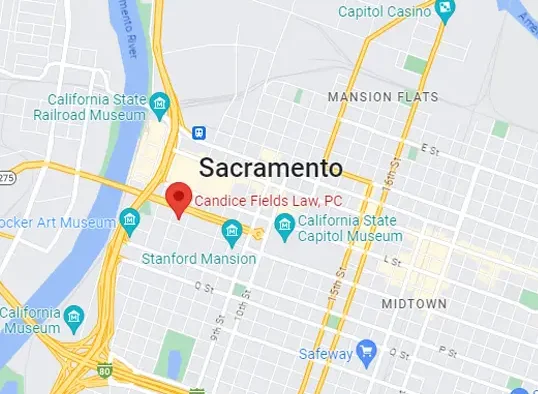Search Warrants in Federal Investigations
When federal agents execute a search warrant at your home or business, it marks a critical escalation in a federal investigation. Understanding this process and knowing how to respond is essential for protecting your rights and interests.
Need legal assistance?
What is a Federal Search Warrant?
A federal search warrant is a court order signed by a federal magistrate judge that authorizes law enforcement to search specific locations and seize particular items. The warrant must be based on probable cause and describe with particularity both the place to be searched and the items to be seized. If you’ve received a target letter from federal authorities, it’s a clear indication that you are under investigation, and it’s crucial to understand how this may relate to a potential search warrant.
Reasons for a Federal Search Warrant
Federal search warrants are powerful investigative tools used by federal agencies to gather evidence in criminal investigations. Understanding the common reasons behind these warrants can help you recognize potential legal exposure and respond appropriately if federal agents appear at your location.
- Financial Fraud: Search warrants commonly target evidence of bank fraud, wire fraud, securities violations, and corporate embezzlement schemes.
- Healthcare Fraud: Federal agents seek evidence of Medicare/Medicaid fraud, billing schemes, kickbacks, and illegal referral arrangements.
- Tax Crimes: Warrants may be issued to collect evidence of tax evasion, false returns, employment tax fraud, and international reporting violations.
- Public Corruption: Federal investigations targeting bribery, kickback schemes, and government contract fraud often require search warrants to gather documentary evidence.
- Digital Evidence: Agents frequently seek warrants to seize and examine computers, phones, and electronic storage devices in cybercrime investigations.
- Drug Trafficking: Search warrants are used to target large-scale drug operations, including distribution networks and prescription drug diversion schemes.
- Money Laundering: Federal agents seek evidence of financial transactions designed to conceal illegal proceeds, including cryptocurrency operations.
- National Security: Warrants may be issued in terrorism investigations, export control violations, and cases involving national security threats.
- Trade Secrets: Federal investigations of intellectual property theft, corporate espionage, and trade secret cases often require search warrants.
- Environmental Crimes: Warrants target evidence of illegal waste disposal, Clean Water Act violations, and other environmental regulatory breaches.
- Business Records: Many federal warrants seek access to corporate documents, financial records, and communications that may reveal criminal activity.
- Regulated Industries: Federal agencies obtain warrants to investigate violations in industries subject to federal oversight, such as healthcare, banking, and securities.
- Conspiracy Evidence: Search warrants often target evidence of communications and relationships between multiple suspects in conspiracy investigations.
At Candice Fields Law, PC, we understand that a federal search warrant often indicates a sophisticated investigation is already well underway. If federal agents execute a search warrant at your home or business, immediate legal representation is crucial. Our experienced defense team can protect your rights, challenge improper seizures, and develop strategic defenses based on the specific focus of the federal investigation.
What Federal Agents Need In Order To Serve a Search Warrant
Federal law enforcement must meet specific legal requirements before obtaining and executing a search warrant. Understanding these requirements can help you identify potential legal challenges and protect your rights during a federal investigation.
- Probable Cause: Agents must demonstrate to a federal magistrate judge that there is reasonable belief that evidence of a crime will be found at the location to be searched.
- Specific Location: The warrant must precisely describe the place to be searched, including exact addresses, building descriptions, and specific areas within buildings.
- Detailed Inventory: Agents must clearly list the types of items they expect to find and seize, avoiding overly broad or vague descriptions.
- Current Information: The probable cause must be based on recent information, not stale intelligence or outdated investigations.
- Sworn Affidavit: A federal agent must submit a detailed sworn statement explaining the basis for probable cause and the need for the search.
- Judicial Review: A federal magistrate judge must independently review and approve the warrant application before it can be executed.
- Time Restrictions: Most warrants must be executed within 14 days of issuance and during daytime hours unless specifically authorized for night execution.
- Knock and Announce: Agents must generally announce their presence and purpose before entering, unless they have specific permission for a "no-knock" entry.
- Geographic Jurisdiction: The warrant must be issued by a judge with proper jurisdiction over the location to be searched.
- Chain of Custody: Agents must be prepared to maintain and document a proper chain of custody for all seized items.
- Proper Identification: Agents must be prepared to identify themselves and provide proper credentials when executing the warrant.
- Copy of Warrant: Agents must have the actual warrant in their possession and must provide a copy to the property owner or occupant.
- Property Receipt: Agents must provide a detailed receipt for all items seized during the search.
- Constitutional Limits: The search must comply with Fourth Amendment protections against unreasonable searches and seizures.
At Candice Fields Law, PC, we carefully examine every aspect of federal search warrants for potential legal challenges. Violations of these requirements may lead to the suppression of evidence or dismissal of charges. Our experienced defense team understands how to identify procedural errors and constitutional violations in federal searches.
What to Expect During a Federal Search Warrant Execution

Federal search warrant executions are intense, carefully orchestrated operations that can be overwhelming for those experiencing them. Understanding what to expect can help you maintain composure and protect your rights throughout the federal criminal case process.
Early Morning Arrival
Federal agents typically execute search warrants at dawn or early morning hours when they expect occupants to be present but not yet departed for work. You may wake to loud knocking and announcements of federal agent presence. Agents will be clearly identified with tactical gear, badges, and agency identifications.
Initial Securing of the Premises
Upon entry, agents will immediately secure all occupants and conduct a protective sweep of the location. This process involves restricting movement within the space and ensuring no one can access weapons or destroy evidence. While this may feel aggressive, it's standard procedure for officer safety and evidence preservation.
Presentation of the Warrant
The lead agent will provide you with a copy of the search warrant. This document details exactly where agents can search and what items they can seize. Read this document carefully, as it sets the boundaries for the agent's authority. The warrant may be lengthy and include attachments listing specific items or categories of evidence sought.
Agent Roles and Organization
Multiple agents will be present, each with specific assignments. The lead agent supervises the operation while others may photograph the premises, search designated areas, interview occupants, or handle evidence collection. Computer forensic specialists may be present if electronic devices are within the warrant's scope.
The Search Process
Agents will systematically search authorized areas, documenting their activities through photographs or video. They may move furniture, access locked containers, and thoroughly examine all spaces within the warrant's scope. This process is methodical and may take several hours or even days, depending on the location's size and complexity.
Handling of Electronic Devices
If computers, phones, or other electronic devices are subject to seizure, specialized agents will handle these items. They may attempt to image devices on-site or seize them for later examination. Business servers and critical systems may require special handling to minimize operational disruption.
Agent Questions and Interviews
During the search, agents may attempt to question occupants. You have the right to remain silent and should exercise this right until speaking with counsel. Even seemingly innocent questions about where to find items can lead to incriminating statements. Politely decline to answer questions and request to speak with your attorney.
Evidence Collection and Documentation
As agents locate items within the warrant's scope, they will carefully document, photograph, and package them. They maintain detailed logs of seized items and their locations. You should pay attention to what's being taken but do not interfere with this process. Agents will provide you with an inventory of seized items before departing.
Duration and Property Access
The length of a search warrant execution varies significantly based on the location's size and the warrant's scope. Searches often last several hours but can continue for days in complex cases. Agents may restrict access to certain areas even after they leave, particularly if the search will continue the next day.
Post-Search Requirements
Before departing, agents must provide you with a copy of the search warrant (if not provided earlier), a complete inventory of seized items, and contact information for the lead agent and prosecutor. They should also provide instructions for retrieving seized items and handling any sealed or sensitive materials.
Proper Documentation Practices
After the search concludes, document everything while your memory is fresh. Note when agents arrived and departed, which areas they searched, and what items they seized. Photograph any areas where property was moved or damaged. This documentation may prove crucial for your defense or for property recovery claims.
Importance of Legal Representation
Immediate legal representation during a search warrant execution is crucial. An experienced federal criminal defense attorney can monitor the search, ensure it remains within authorized scope, advise you about questioning, and begin preparing any necessary legal challenges. At Candice Fields Law, PC, we provide immediate response to search warrant executions and guide clients through this critical phase of federal investigations.
Next Steps and Communication Protocols
After the search, limit discussions about the investigation to your attorney. Inform key personnel about operational impacts but avoid speculation about the investigation's focus. Your attorney will help you navigate communication with employees, business partners, and other stakeholders while protecting your legal interests.
What To Do During a Federal Search Warrant Execution
When federal agents arrive to execute a search warrant, your actions during the first few minutes and throughout the search can significantly impact your legal situation. Follow these critical steps to protect your rights while complying with law enforcement requirements.
- Stay Calm: Maintain your composure and act professionally. Your behavior during the search will be noted by agents and could impact your case.
- Request Credentials: Ask to see and write down the lead agent's name, agency, and contact information. This information will be crucial for your attorney.
- Read the Warrant: Ask for a copy of the search warrant and carefully review the authorized areas and items to be seized. The warrant defines the legal limits of the search.
- Contact Your Attorney: Call your criminal defense attorney immediately. Do not wait until after the search concludes.
- Remain Silent: Decline to answer questions or provide statements until your attorney arrives. Even casual conversations can be used against you.
- Document the Search: Mentally note which areas agents search and what items they seize. Write these details down as soon as possible.
- Monitor But Don't Interfere: Observe the search process but do not impede the agents' activities. Interference could result in criminal charges.
- Preserve Security Footage: If you have security cameras, ensure any footage of the search is preserved. This could be valuable evidence for your defense.
- Avoid Consent Requests: Do not consent to searches beyond the warrant's scope. Let agents know they need to obtain additional warrants for areas not covered.
- Secure Passwords: Do not provide passwords or encryption keys unless specifically ordered by a court. Consult with your attorney about digital device access.
- Record Property Damage: Note any damage to property during the search. Take photographs after agents depart.
- Obtain Documentation: Request and retain copies of the search warrant, any attachments, and the inventory of seized items before agents leave.
- Limit Communications: Do not discuss the search with employees, friends, or family. Direct all inquiries to your attorney.
At Candice Fields Law, PC, we understand the stress and uncertainty of experiencing a federal search warrant execution. Contact us immediately if federal agents arrive at your home or business. Our experienced defense team can respond quickly, protect your rights, and guide you through this critical phase of a federal investigation. Remember, your actions during the search warrant execution can significantly impact your defense - professional legal representation from the outset is essential.
What Not To Do During a Federal Search Warrant Execution
When federal agents execute a search warrant, avoiding certain actions is just as important as knowing what to do. The following list outlines critical mistakes to avoid that could worsen your legal situation or result in additional criminal charges.
- Don't Obstruct the Search: Never attempt to block agents from accessing areas or interfere with their activities. Obstruction of justice carries severe penalties.
- Don't Destroy Evidence: Avoid any attempts to delete files, shred documents, or dispose of items. Destruction of evidence is a separate federal crime.
- Don't Have Side Conversations: Avoid whispered discussions with colleagues or family members during the search. Agents will be watching and documenting all behavior.
- Don't Use Your Phone: Do not make calls or send messages about the search except to your attorney. Communications about the investigation could be interpreted as obstruction.
- Don't Answer Questions: Avoid engaging in casual conversation with agents or answering questions about your activities. Politely decline until your attorney arrives.
- Don't Give Passwords: Never voluntarily provide passwords to electronic devices or encrypted files without consulting your attorney first.
- Don't Sign Documents: Refuse to sign any documents, including consent forms or statements, without attorney review. Agents may try to expand the search scope.
- Don't Flee the Scene: Leaving the premises during the search could be interpreted as consciousness of guilt. If you must leave, inform the lead agent.
- Don't Discuss on Social Media: Avoid posting about the search on any social media platforms. These posts can be used as evidence against you.
- Don't Speculate About Investigation: Resist the urge to guess or discuss with others what the investigation might be about. These conversations could be witnessed or recorded.
- Don't Allow Staff to Interfere: If you're a business owner, instruct employees to continue working normally and avoid interfering with the agents' activities.
- Don't Hide Information: Attempting to conceal the location of items listed in the warrant could result in additional charges. Let your attorney handle any disputes.
At Candice Fields Law, PC, we understand that a federal search warrant execution is a stressful and potentially overwhelming experience. Our experienced defense team can provide immediate assistance and help you avoid these critical mistakes. Contact us immediately if federal agents arrive with a search warrant. Remember that your actions during the search can significantly impact your case, and having proper legal representation from the outset is crucial for protecting your rights and interests.
How a Federal Criminal Defense Lawyer Can Help Protect Your Rights
During a federal search warrant execution, having experienced legal representation is crucial for protecting your rights and interests. At Candice Fields Law, PC, we provide immediate assistance and strategic guidance throughout the search warrant process and subsequent investigation.
- Immediate Response: We can arrive at the search location while agents are still present to monitor the execution and ensure it remains within legal bounds.
- Warrant Review: We carefully examine the search warrant to verify its validity and ensure agents stay within its authorized scope.
- Communication Buffer: We act as an intermediary between you and federal agents, protecting you from making inadvertent incriminating statements.
- Rights Protection: We ensure agents respect your constitutional rights and document any violations that could lead to evidence suppression.
- Evidence Documentation: We monitor the search process and maintain independent records of seized items and agent conduct.
- Digital Evidence Handling: We address complex issues involving electronic devices, including questions about passwords, encryption, and data privacy.
- Employee Management: We help business owners properly instruct employees about their rights and obligations during the search.
- Privilege Protection: We identify and protect attorney-client privileged materials from seizure or review by agents.
- Property Recovery: We work to expedite the return of seized items, especially those critical to business operations.
- Legal Challenges: We identify potential constitutional violations and prepare motions to suppress evidence when warranted.
- Investigation Insight: We analyze the warrant's focus to help determine the investigation's scope and potential charges.
- Strategic Planning: We begin developing defense strategies immediately based on observations during the search.
- Government Negotiations: We engage with prosecutors early to address concerns and potentially influence the investigation's direction.
Contact Candice Fields Law, PC, immediately if you receive a federal search warrant. Early intervention by experienced counsel can make a crucial difference in protecting your rights and achieving the best possible outcome in your case. Remember that decisions made during the initial stages of a federal investigation often have lasting impacts on the final resolution.
Contact Our Federal Defense Team Immediately
When federal agents arrive with a search warrant, time is critical. Contact Candice Fields Law, PC, for immediate assistance. Our experienced federal defense team will protect your rights and guide you through this crucial phase of a federal investigation.
Need legal assistance?
Federal Search Warrant FAQs
Can agents search areas not listed in the warrant?
Federal agents must strictly adhere to the locations specified in the warrant, though they may seek expanded authority if they discover evidence of additional crimes during the authorized search.
What happens if agents find evidence of other crimes during the search?
If agents discover evidence of crimes not covered by the original warrant, they may secure the premises and obtain an additional warrant. This is known as the "plain view" doctrine.
Can I move seized computers or devices to a different location first?
Never attempt to relocate devices or items before agents arrive. This could be interpreted as obstruction of justice, even if your intention is to minimize business disruption.
Must agents conduct the search during business hours?
While most warrants are executed during daylight hours, agents can obtain specific authorization for a nighttime search if circumstances require it.
What if the agents break things during the search?
Document any damage with photographs and detailed notes. While agents can force entry if necessary, you may have claims for compensation for unnecessary damage.
Will I know when the investigation is complete?
The execution of a search warrant doesn't indicate when an investigation will conclude. Federal investigations often continue for months or years after a search warrant.
Can agents search my car if it's not listed in the warrant?
If your vehicle is within the curtilage (immediate surrounding area) of the searched property, it may be subject to search. Otherwise, agents need separate authorization.
Do agents have to put everything back where they found it?
While agents typically try to minimize disruption, they are not required to return items to their original locations after examination.
What if some seized documents contain privileged information?
Alert agents to potentially privileged materials. A separate "privilege review team" may be used to screen these documents before investigators can access them.
How long can agents keep my seized property?
The duration varies based on the investigation's needs. Your attorney can file motions for return of property, especially for items essential to business operations.
Can I be arrested during the search even if I'm not listed in the warrant?
Yes, if agents develop probable cause for an arrest during the search. A search warrant is distinct from an arrest warrant.
Should I tell my employees about the warrant after the fact?
Consult with your attorney before making any statements to employees. Your attorney will help craft appropriate communications that don't compromise your legal position.
What if I'm not present when agents arrive to execute the warrant?
Agents can still execute the warrant in your absence. They will typically leave a copy of the warrant and inventory with the person in charge of the premises.
If I'm served with a warrant, does that mean I'm definitely going to be charged?
Not necessarily. While a search warrant indicates a serious investigation, not all searches lead to criminal charges. Early intervention by experienced counsel can sometimes prevent charges from being filed.





